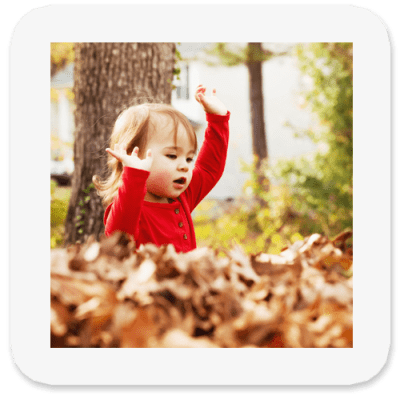 Even for the biggest supporters of outdoor and hands-on play, the benefits of such play can be surprising! Beyond getting some fresh air or letting them get some energy out of their system, outdoor hands-on play provides a number of tangible, real-world benefits to your child’s development that will help them reach milestones and soar to their true potential. These are five of the most notable benefits that hands-on activity can provide to your child:
Even for the biggest supporters of outdoor and hands-on play, the benefits of such play can be surprising! Beyond getting some fresh air or letting them get some energy out of their system, outdoor hands-on play provides a number of tangible, real-world benefits to your child’s development that will help them reach milestones and soar to their true potential. These are five of the most notable benefits that hands-on activity can provide to your child:
Improved Motor Skills
Any parent of a young kid knows how clumsy they can be! As they age, all children slowly learn how to use their arms and legs to move around and manipulate things in their everyday lives. And just like with all things, practice makes perfect when it comes to children gaining their motor skills — and healthy amounts of hands-on play can serve as one of the building blocks of those skills.
For instance, as your kid runs around outside, they’ll slowly become more adept at moving their legs such that they can walk, then run, faster. Likewise, playing sports and drawing with chalk will help them develop the faculties to better control their arms and hands, including their finer motor skills. Another major upside of hands-on play is the early development of hand-eye coordination. As your child plays, their brain will get better at communicating with the rest of their body and they will, overtime, get better and better at making their hands, feet, etc. do exactly what they want. We take our hand-eye coordination for granted as adults, but for kids, it’s a bit tricky at first to get their hands to move exactly as they want them to!
Improved Thinking Skills
They say you learn by doing, and this is especially true for children! Hands-on play encourages them to explore their environments and find new adventures, and in doing so, they’ll naturally come across situations where they discover how things work, find and satisfy new curiosities, solve problems, and much more. It’s important to remember that children aren’t born with knowledge of how the world works — that’s why children are so naturally curious — so providing an environment where they can play, explore and learn about the world hands-on is especially important. Whether it’s on the playground, at the park, or indoors with a bucket of toys or blocks, hands-on play is vital to your kid’s neurodevelopment!
Boosting Creativity
Hands-on play requires (and develops!) critical thinking skills in young minds. While playing, your child will likely come across ‘problems’ (e.g. my tower of blocks keeps falling over; I want to draw a picture of mommy but don’t know how) and will likely want to solve them one way or another. This is one of the driving factors behind creativity, problems and the search for new approaches to solve those problems. In the example of picture drawing, your child might, for example, better figure out how to draw that picture through observation when they see one of their classmates drawing a similar picture. Or, they could go it alone and give it their best shot — then refine their craft by gaining experience and trying new illustration techniques.
Hands-on play also heavily encourages children to use their imagination. Those scribbles on the driveway or LEGO towers in the living room may look silly to us adults, but they’re actually windows into your child’s growing creativity faculties! With each subsequent drawing, tower and so on, your child will learn more about what works and what doesn’t, what they like and don’t like in a creative work, and these form the seeds of future creativity as an adult.
Building Social Skills
Especially in a daycare, preschool or other early learning setting, hands-on play gives young kids an open-ended environment for cooperative and multiple-participant play. Generally speaking, young children will gravitate toward playing with other children when given the chance, and when they do, they begin to learn how to interact with their peers. From new words to new games to play, children have a lot to learn from one another! Hands-on play will also greatly help teach your kid friendly and appropriate ways of interacting with others, as their brain subconsciously logs which of their behaviors result in good outcomes (e.g. making their friends laugh) and bad outcomes (e.g. making others cry or shy away).
Fostering a Love of Learning
What’s the best thing about play? The fact it’s fun, of course! That’s why providing children a fun, healthy and safe space for hands-on play is so important for parents of young kids — not only is it fun, but hands-on play is a valuable learning experience. While it’s distinct from “classroom-style” learning, it’s no less valuable as an instrument of learning because of it. With the right environment and a pinch of guidance, hands-on play can quickly foster a love of learning in your child. They’ll be learning a ton about their world, all while having fun!
At The Big Red Barn, we’re big proponents of hands-on play. We encourage our kiddos to get out and explore, and make friends while doing so — all in the pursuit of growth and learning. If you’d like to learn more about our preschool programs and Pre-K, you can read up on our curriculum here.

